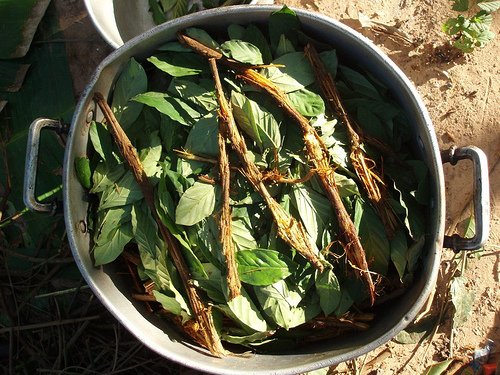Indigenous Wisdom and Ayahuasca: The Spiritual Connection that Saved Four Children Lost in the Amazon
On June 9, 2023, a miraculous event unfolded in the dense jungles of Guaviare, Colombia. Four children—Lesly (13), Soleiny (11), Tien (4), and Cristin (11 months)—who had been lost for 40 days following a tragic Cessna 206 plane crash, were safely rescued by an extraordinary team. This operation, named "Operation Esperanza," was a collaborative effort between the Colombian Military Forces and local indigenous communities.
Eliécer Muñoz, a member of the Jirijiri indigenous reserve and the leader of the rescue operation, played a pivotal role in the successful endeavor. In an interview with Bluradio, Muñoz described how the unlikely alliance utilized a blend of modern technology and traditional knowledge to find the children. A crucial element of this was the ritualistic use of the sacred hallucinogenic brew, ayahuasca.
Ayahuasca, also known as yagé, has been used for centuries by indigenous communities in South America for spiritual and healing purposes. According to the Multidisciplinary Association for Psychedelic Studies (MAPS), the brew prepared from the Banisteriopsis caapi vine and the Psychotria viridis leaf induces visionary states that are believed to enable communication with spiritual entities and the natural world.
As the search became increasingly challenging, the rescue team turned to this sacred plant as a last resort. "That was the last instance we had to know the great truth," Muñoz told Bluradio. "We set aside all earthly spirits and our creator father guided us through the sacred plants".
The pivotal ayahuasca ceremony occurred just a day before the children were found near the Apaporí River, a location that had eluded the advanced mapping and technology of the military forces. This highlights the importance of indigenous wisdom and the potential of spiritual practices like the ayahuasca ceremony in navigating complex challenges.
The Guaviare rescue operation sends a powerful message about the enduring value of indigenous knowledge. Often overlooked in our technocentric world, this traditional wisdom, accumulated over centuries and embedded in spiritual practices, provided crucial insights that technology alone could not offer.
Moreover, this experience reinforces the respect for sacred plants like coca, tobacco, and ayahuasca, often misunderstood due to their psychoactive properties. According to several scientific studies and the Global Drug Survey, the use of ayahuasca has been shown to have significant mental health benefits when used in a traditional or therapeutic context.
'Operation Esperanza' serves as a testament to the power of collective effort, where modern science and traditional wisdom united to achieve a common goal. It illuminates the significance of spiritual practices in indigenous cultures and their potential to guide and assist in seemingly impossible situations.
In conclusion, the Guaviare rescue is a compelling narrative of hope and survival, championed by the bridging of cultural divides and mutual respect. As we progress and evolve, embracing this inclusivity and holistic approach may open doors to solutions for many more challenges that lie ahead.

